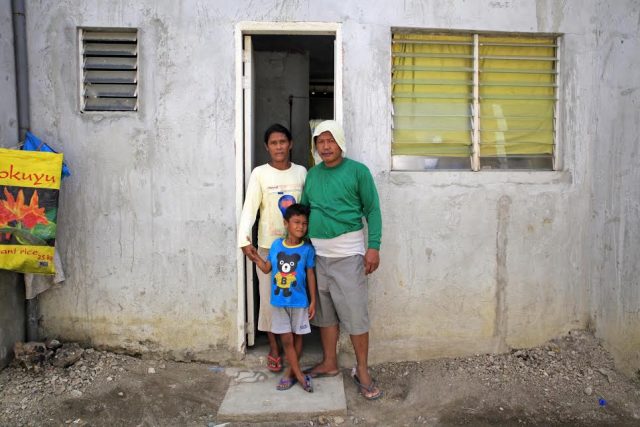
MANILA – Senators gave Finance department officials a scolding at Wednesday’s ways and means panel hearing for proposing a tax package that hits socialized and low-cost housing.
At the hearing chaired by ways and means chairman Sen. Juan Edgardo Angara, it fell to DOF Undersecretary Tonette Tiongco to defend the proposal that removes the VAT exemption for socialized housing and low-cost housing units which cost an average of from P450,000 to P3 million.
Sen. Cynthia Villar called out the DOF, demanding to know why something that benefits many ordinary people should be touched.
The DOF explained that while the Philippines imposes a higher VAT of 12 percent compared to, say, Thailand at 7%, its collections are dismally low because of hundreds of exemptions.
Tiongco added numerous tax exemptions have sown confusion as well. This is why the DOF wants to do away with the current VAT system and to limit budget support to the very needy sectors under a scheme of targeted assistance.
Villar was unconvinced, asking the DOF if it honestly believes it helps people more if they are taxed in order to give funds to the government to help them, when experience shows there is a lot leakage in that form of assistance and the services are not reliable.
“I don’t believe yung sinasabi mo kinukuha mo taxes from tao and binabalik mo sa pagbalik sa budget. Make sure you will use it properly; kukunin mo ‘yan sa tao. Ibig mo sabihin, pag maximize mo nakulekta mong taxes, its good for the people? Not necessarily,” Villar said.
Villar expressed concern that overseas Filipino workers (OFWs) will be among the hardest hit from removal of the VAT exemption because they avail of low cost housing.
The VAT will not be borne by the businessmen or lessors but by the consumers or end users, she added.
The proposed tax measure will have the end result of discouraging OFWs from buying modest homes to cap their long sacrifice of working abroad.
Villar reminded the DOF of the huge remittance flows – $25 billion – that OFWs bring in, shoring up the economy for decades. The simple aspiration – and “biggest investment” – of most OFWs is to be able to buy their own house, and the only one they can afford are those costing P3 million and below – the bracket that will be losing the exemption.
Even the minimum wage earners that have been able to buy socialized housing units or those worth P450,000 and above will be hit by the proposed measure, lawmakers said. Why? Even if the DOF promises to give out vouchers, availing of such benefits is not a simple or easy process, given the red tape in government.
Villar said if she, a senator, is often exasperated by the red tape in the bureaucracy, what more the ordinary people? She said the government should simply continue the VAT exemption for this sector.
Simulated expense rise
An example presented by Bienvenido Uy from the Subdivision and Housing Developers Association, Inc. (SHDA) showed the monthly payments of users of socialized housing will rise.
For those with homes worth P450,000 the average monthly payment now is 3,759. Once VAT exemption is lifted, this will rise to P4,210 a month.
For the so-called “economic housing” with average tag of P1.9 million, the average monthly payment is P12,783. This will rise to P14, 317 when VAT exemption is gone.
Meanwhile, those in low-cost housing costing P3 million with a monthly amortization now of P25,065 will see their payments rise to P28, 073 once 12% VAT is imposed.
Villar wanted to know why past administrations never trifled with VAT exemptions for housing. She asked the DOF to reconsider their proposal.
Housing backlog
For his part, Sen. JV Ejercito also shunned the proposal because, in his view, this will further swell the backlog in housing, as fewer developers will build homes; and fewer people will have the capacity to buy houses.
He fretted that with that situation, even more people will just resort to what the urban poor group KADAMAY did – encourage people to simply “occupy” or take over housing units.
Government has projected getting P6.2 billion from imposing VAT on low cost housing. The senators warned DOF, however, that this may boomerang and result in even lower revenue, while inflicting misery on many sectors.
Meanwhile, even the chairman of the ways and means committee, Angara, frowned on the DOF proposal. It is rather hard to conceive how, with a housing backlog of 6 million, can the government ever even draw in more revenue from taxing the sector. Right now, he said, only 180,000-200,000 housing units are being produced, barely filling in the huge backlog. That number will worsen once tax is imposed on low cost housing, he said.
The DOF argued that lifting the VAT exemption does not automatically mean that 12% VAT will be imposed on low cost housing.
DOF said the prices of construction materials are expected to go down, so developers will not really be discouraged.
WATCH NEWS5’S VIDEO REPORT:








